#483 Métis bannock, Métis kinship
Memories of a Metis Settlement: Eighty Years of East Prairie Metis Settlement
by Constance Brissenden (editor)
Penticton: Theytus Books, 2018
$14.89 / 9781926886503
Reviewed by Angie Tucker
First published Feb. 11, 2019
*
 When I first received Constance Brissenden’s book, I thumbed through the pages, stopping to look at the faces and places in the photographs. I stumbled across a recipe for Theresa Auger’s recipe for Bachelor Bannock and earmarked the page so that I could return to it following the holidays. Once all the company had left, and our children returned to school, I approached Memories of a Metis Settlement: Eighty Years of East Prairie Metis Settlement by preparing Auger’s bannock. Shortly after taking the bread out of the oven, I slathered butter and gooseberry jam over its warm surface, embraced a cup of hot tea, and sat down to meet the residents — both past and present — of East Prairie Metis Settlement, northwest of Edmonton.
When I first received Constance Brissenden’s book, I thumbed through the pages, stopping to look at the faces and places in the photographs. I stumbled across a recipe for Theresa Auger’s recipe for Bachelor Bannock and earmarked the page so that I could return to it following the holidays. Once all the company had left, and our children returned to school, I approached Memories of a Metis Settlement: Eighty Years of East Prairie Metis Settlement by preparing Auger’s bannock. Shortly after taking the bread out of the oven, I slathered butter and gooseberry jam over its warm surface, embraced a cup of hot tea, and sat down to meet the residents — both past and present — of East Prairie Metis Settlement, northwest of Edmonton.
As I began to read, I thought about how stories have a way of bringing you closer to home. I felt as though I had met some of these contributors before, yet I knew that was nearly impossible. But their stories speak to many other Métis families’ histories of survival and determination.
 Brissenden’s book speaks to the beginnings and transformations of the Bellerose, L’Hirondelle, Auger, Beaudry, Desjarlais, Dumont, Patenaude, Supernault, and Haggerty families.
Brissenden’s book speaks to the beginnings and transformations of the Bellerose, L’Hirondelle, Auger, Beaudry, Desjarlais, Dumont, Patenaude, Supernault, and Haggerty families.
The generational reflections of these community members address larger themes of resilience and collaboration, while the book also outlines the specific failures and successes of East Prairie Metis Settlement. I especially appreciate that the editor was able to reanimate the firsthand accounts of the early settlers of East Prairie.
As a Métis scholar working with Métis settlements, I have come to recognize the relationships and connections that exist between Métis and the land. The land sustains Métis people — physically, emotionally, mentally, spiritually — and informs our basis for natural laws. It is evident that these physical and human attributes, and Métis values of kinship and partnership, were foundational to the early community of East Prairie. This book brings attention to the camaraderie and connection that the residents have continued to practice over the past eighty years, not only with their human kin, but also with their non-human relations. The accounts found within this book speak of the “old-ways” and remind us of where, and who, we came from.
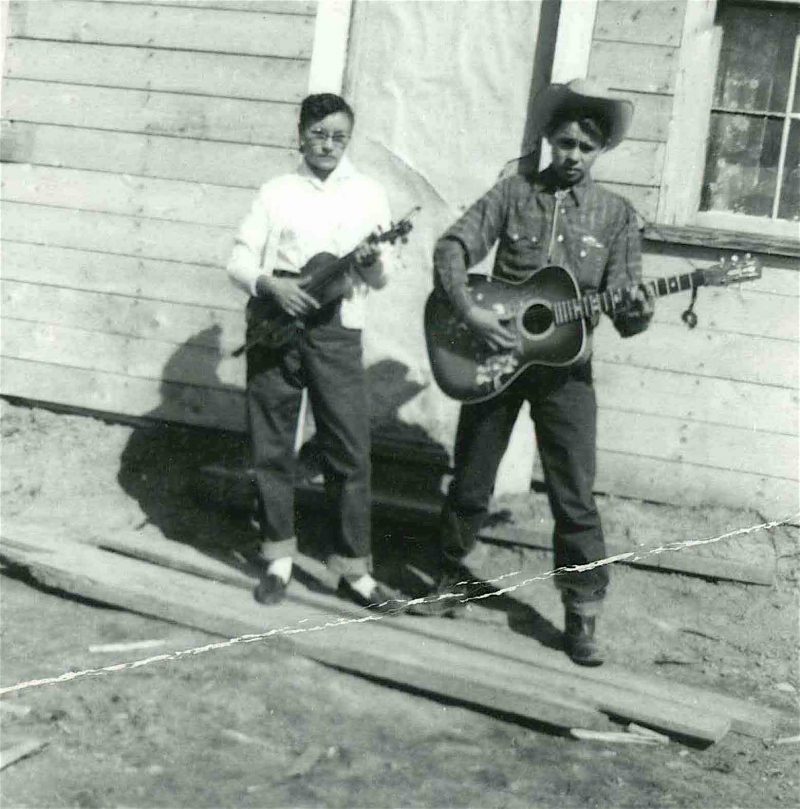
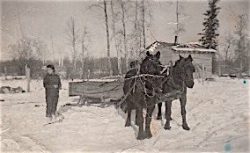
Personal stories outline the difficulties that residents faced during the early years at the settlement. Community members experienced flooding, shortages of food and provisions, financial inadequacies, and a lack of roads and schools for their children. However, by living and working together as a community, the residents shared their harvested crops, meats, medicines, and labour. Despite their hardships, they worked together to create a successful and enduring community.
Over time, floorless log cabins turned into modern housing, a bridge, school and church were erected, and the road into the settlement was built. Electricity was brought into the settlement in the late 1960s.
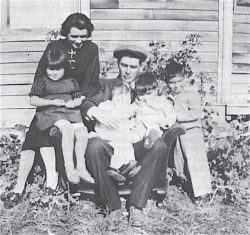
According to Margaret Supernault, life is now much easier for those living on the settlement, but the closeness of the community seems to have diminished (p. 73). People are losing their “old-ways” for survival due to the extension of modern amenities to East Prairie Metis Settlement.
Reading this short book while eating Theresa Auger’s bannock made for a sensory experience that brought me closer to the contributors — and closer to the experiences of the working men, women, and families of East Prairie Metis Settlement. I recommend this book to scholars of the Métis diaspora that now extends throughout western Canada and British Columbia.
*
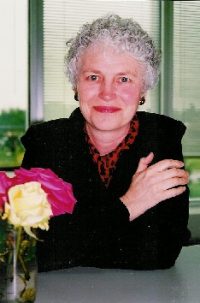
Editor’s note: Here is the recipe for Bachelor Bannock from Memories of a Metis Settlement. Early settler and bachelor George Harvey was a veteran of the First World War. He lost an eye in the war and was wounded in other parts of his body; thereafter he wore a glass eye. After the war, George had a war disability pension and helped others when they were in need. In return, they looked out for him. Bachelor Bannock: Preheat oven to 350°F (177°C). In one mixing bowl, combine 3 cups flour, 1 tablespoon baking powder, 1 teaspoon salt, 1 teaspoon sugar. In another bowl, mix ½ cup milk and ½ cup water and beat in the egg. Pour the liquid into the bowl of dry ingredients and mix. Add water until it looks like cake dough, and then pour it into a greased pan. Bake about one-half to one hour, depending on the thickness of dough. Thanks to Theresa Auger for this recipe.
*

Angie Tucker is Red River Métis from the Poplar Point/St. Anne’s area in Manitoba. As an Indigenous feminist and cultural anthropologist, she is currently enrolled as a PhD student in the Department of Native Studies at the University of Alberta under the supervision of Dr. Adam Gaudry. Her Masters thesis, “awana niyanaan/Who Are We?” centred on the Buffalo Lake Métis Settlement in Alberta. In it, she sought to understand how attachments to traditional culture promote both self and group identity and to challenge the more often stringent definitions of what constitutes “being” Métis in legal, academic, and social understandings. Today, her work centres on Métis relationships to land and the revitalization of the Cree/Michif teaching of wahkohtowin as a basis to create a model for Métis inclusion. She promotes the use of equitable and inclusive land consultation agreements and processes that privilege Métis knowledge systems.
*
The Ormsby Review. More Books. More Reviews. More Often.
Editor/Designer/Writer: Richard Mackie
Publisher/Writer: Alan Twigg
The Ormsby Review is a journal service for serious coverage of B.C. books and authors, hosted by Simon Fraser University. The Advisory Board consists of Jean Barman, Robin Fisher, Cole Harris, Wade Davis, Hugh Johnston, Patricia Roy, David Stouck, and Graeme Wynn. Scholarly Patron: SFU Graduate Liberal Studies. Honorary Patron: Yosef Wosk. As of September, 2018, Provincial Government Patron: Creative BC
“Only connect.” – E.M. Forster

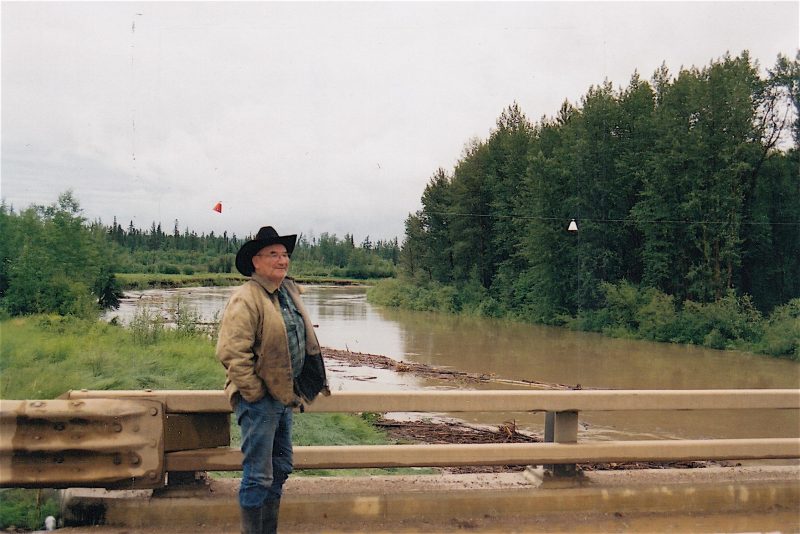
One comment on “#483 Métis bannock, Métis kinship”
Comments are closed.